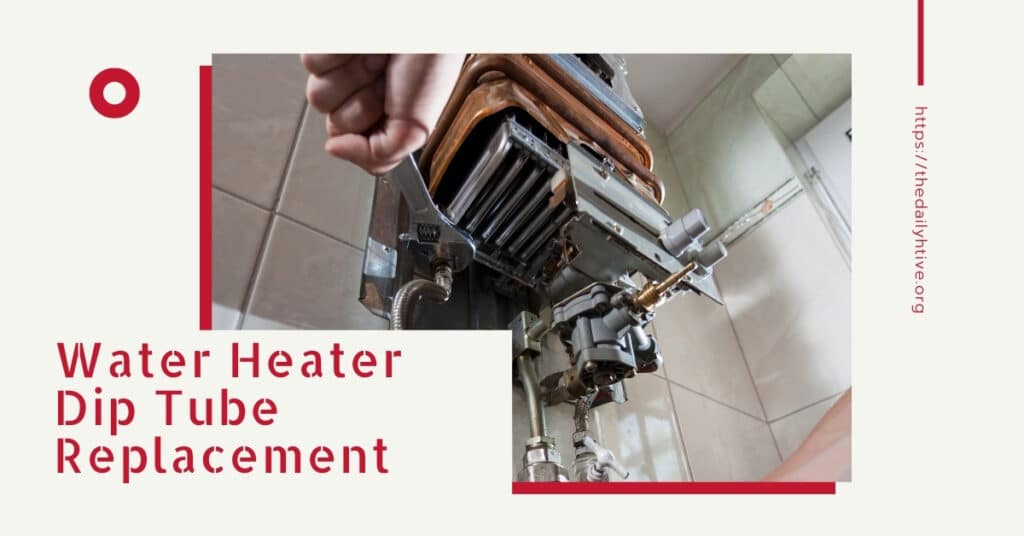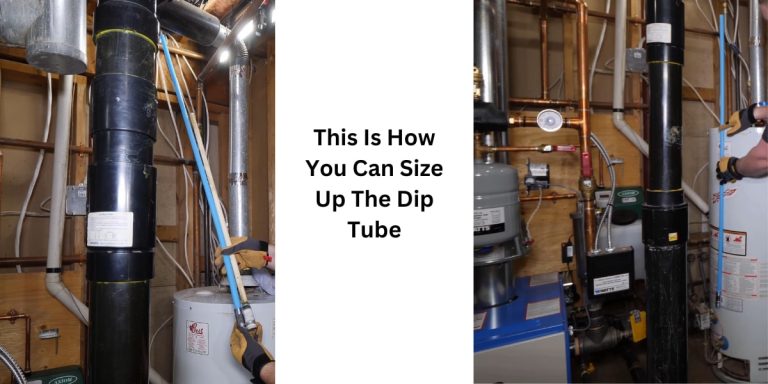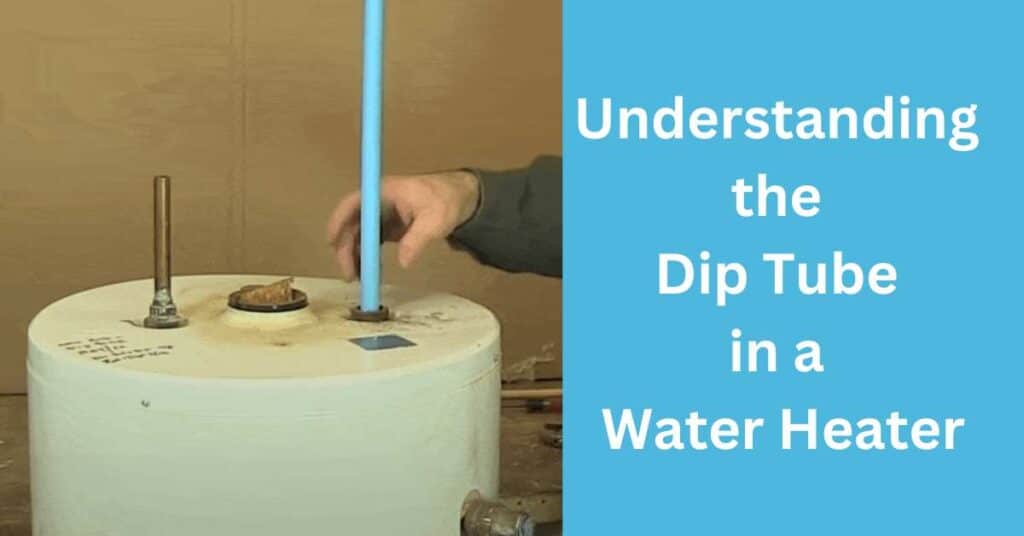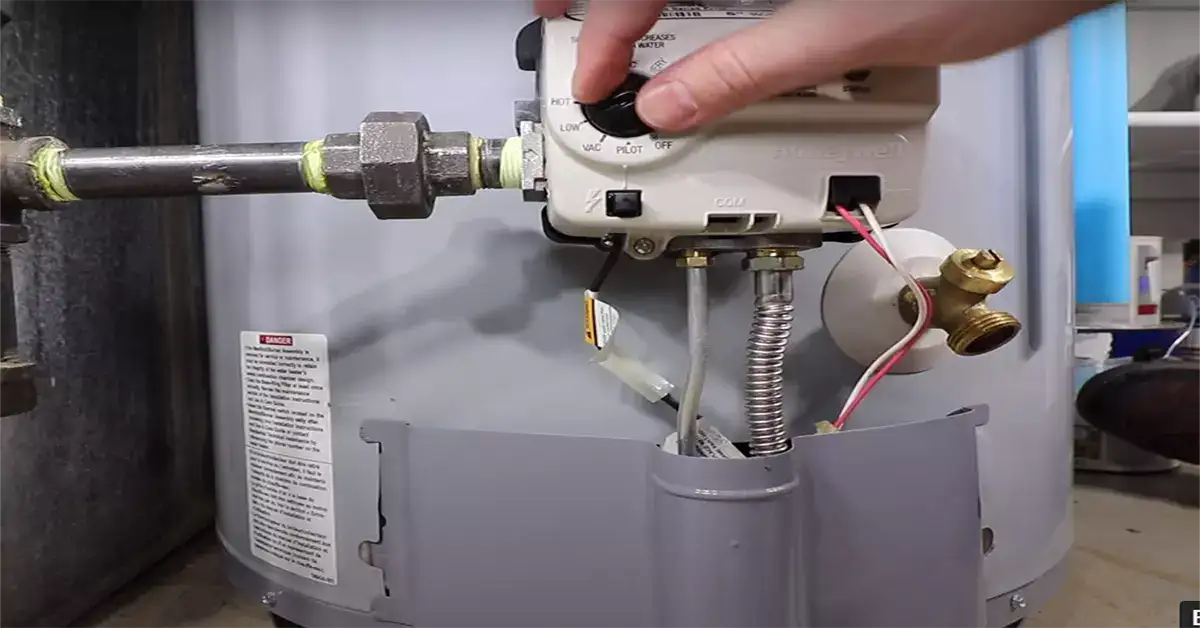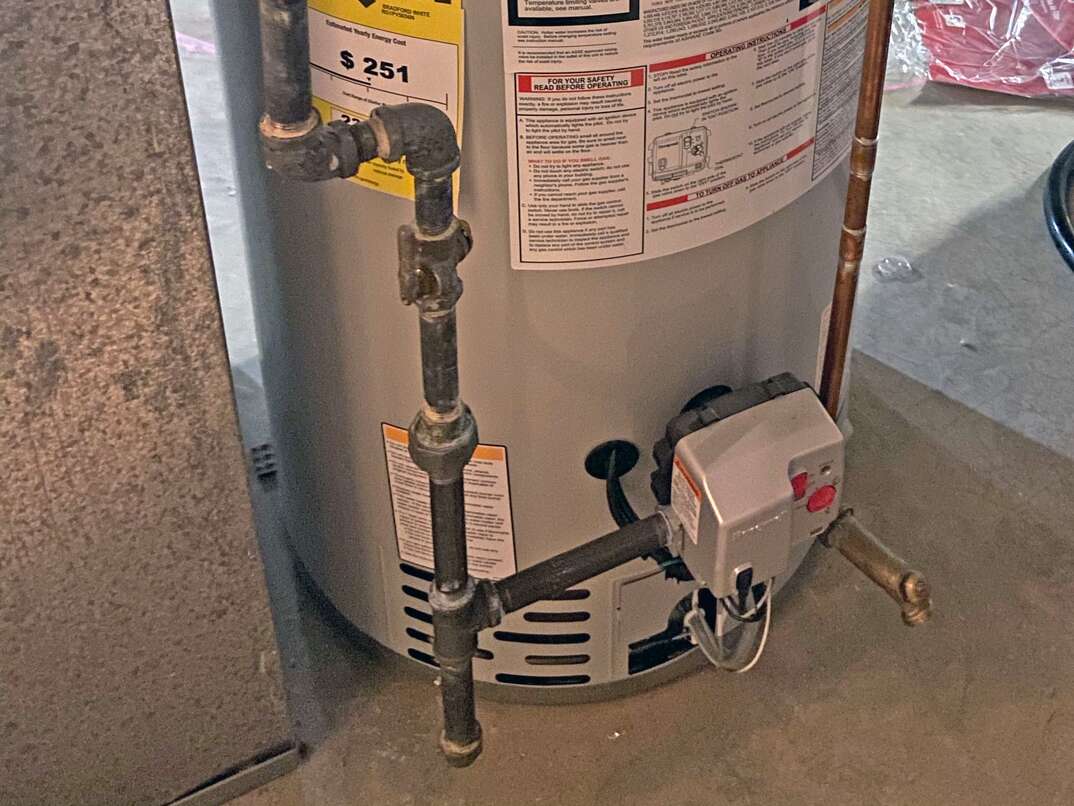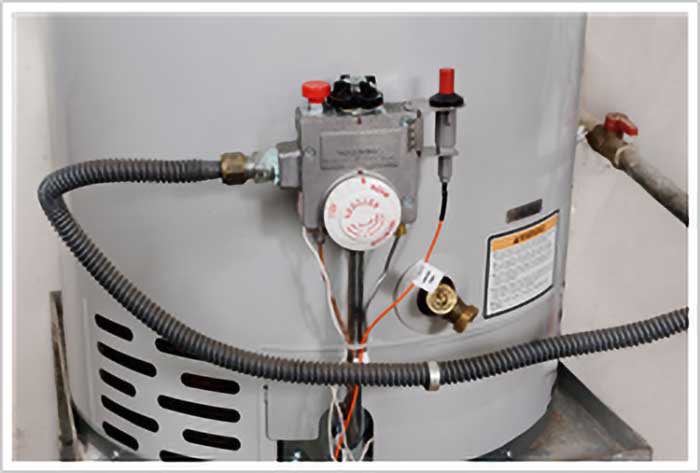Cost To Replace Dip Tube In Water Heater

Water heater problems can disrupt daily life and often require immediate attention. One component that commonly contributes to performance issues is the dip tube. While seemingly simple, its failure can lead to a range of problems. Understanding the cost to replace a dip tube, along with the broader context of water heater repair and maintenance, is valuable for HVAC professionals, students, and homeowners alike.
Understanding the Dip Tube
The dip tube is a long, slender pipe inside your water heater tank. Its primary function is to direct cold water entering the tank to the bottom, ensuring that the cold water doesn't immediately mix with the hot water at the top. This maximizes the efficiency of the heating process and provides a consistent supply of hot water.
Over time, dip tubes can degrade, crack, or even disintegrate, particularly in areas with hard water. Signs of a failing dip tube include:
- Lukewarm water, even after the water heater has been running for a while.
- Sediment in your hot water, appearing as small plastic pieces.
- Inconsistent water temperature.
- Reduced hot water capacity.
Cost to Replace a Dip Tube: A Breakdown
The cost to replace a dip tube in a water heater varies depending on several factors:
- Labor Costs: This is usually the most significant expense. HVAC technicians typically charge an hourly rate, which can range from $75 to $150 per hour, depending on location and experience. The replacement process usually takes 1-2 hours.
- Dip Tube Cost: The dip tube itself is relatively inexpensive, usually costing between $10 and $50. The price can fluctuate based on the material (plastic, copper, or other specialized materials) and the size required for your specific water heater model.
- Water Heater Type: Accessing and replacing the dip tube can be more complex in some models than others. For example, tankless water heaters might have a different configuration or require specialized tools, potentially increasing the labor cost.
- Geographic Location: Labor costs and material prices can differ significantly based on where you live. Metropolitan areas tend to have higher prices than rural areas.
- Emergency Service Fees: If you require immediate service outside of regular business hours, you may incur additional emergency service fees.
Estimating the Total Cost: A reasonable estimate for replacing a dip tube in a standard residential water heater is between $150 and $400. This includes the cost of the dip tube itself, labor, and any associated service fees. Obtain quotes from multiple HVAC professionals to ensure you receive a fair price.
DIY vs. Professional Replacement
While replacing a dip tube is technically a DIY project, it's generally recommended to hire a qualified HVAC technician. Here's why:
- Safety: Working with water heaters involves electricity and potentially dangerous gases (if you have a gas water heater). Incorrectly disconnecting or reconnecting these systems can lead to serious injury or property damage.
- Expertise: A professional technician can accurately diagnose the problem, ensuring that the dip tube is indeed the culprit. They can also inspect other components of the water heater for potential issues, preventing future problems.
- Warranty: Improper installation can void the manufacturer's warranty on your water heater.
- Tools: Specialized tools are often required for water heater repair. A technician will have these tools readily available.
Attempting a DIY repair without the necessary knowledge and experience can be risky and potentially costly in the long run.
The HVAC Technician: A Career Path
Becoming an HVAC technician offers a rewarding and stable career path. The demand for skilled technicians is consistently high, driven by the ongoing need for installation, maintenance, and repair of heating, ventilation, air conditioning, and refrigeration systems. The Bureau of Labor Statistics projects a solid job outlook for HVAC technicians over the next decade.
Education and Training: Most HVAC technicians complete a formal training program at a vocational school, technical college, or through an apprenticeship. These programs typically cover topics such as:
- Refrigeration principles
- Electrical systems
- HVAC system design
- Troubleshooting and repair
- Safety procedures
Apprenticeships combine classroom instruction with on-the-job training, providing invaluable practical experience. Many employers prefer to hire technicians who have completed an apprenticeship.
Certifications and Licensing
Earning certifications and licenses is crucial for career advancement in the HVAC industry. Some of the most recognized certifications include:
- NATE (North American Technician Excellence): NATE certification demonstrates competency and professionalism, enhancing your credibility with employers and customers. NATE offers certifications in various HVAC specialties.
- EPA Section 608 Certification: This certification is required for technicians who handle refrigerants. It ensures that technicians understand and comply with federal regulations regarding refrigerant handling, recovery, and disposal.
- State and Local Licensing: Many states and municipalities require HVAC technicians to be licensed. Licensing requirements vary by location, but typically involve passing an exam and demonstrating relevant work experience.
Obtaining these certifications demonstrates your commitment to professionalism and expertise, increasing your earning potential and job opportunities.
Salary Expectations
The salary for HVAC technicians varies depending on experience, education, certifications, and location. According to the Bureau of Labor Statistics, the median annual wage for HVAC technicians was around $50,000, but experienced technicians with specialized skills and certifications can earn significantly more. Top earners can exceed $70,000 or even $80,000 per year.
Factors that influence salary include:
- Experience: Entry-level technicians typically earn less than experienced technicians.
- Certifications: Technicians with NATE certification and other specialized certifications command higher salaries.
- Location: Salaries are generally higher in areas with a high cost of living and strong demand for HVAC services.
- Specialization: Technicians who specialize in specific areas, such as commercial refrigeration or building automation, may earn more.
The HVAC industry offers a clear path for career advancement, with opportunities to move into supervisory roles, management positions, or even start your own HVAC business.
Career Paths in HVAC
The HVAC field offers diverse career paths beyond basic installation and repair. Here are a few examples:
- HVAC Technician: Installs, maintains, and repairs HVAC systems in residential and commercial buildings.
- HVAC Installer: Specializes in the installation of new HVAC systems.
- HVAC Service Technician: Focuses on troubleshooting and repairing existing HVAC systems.
- HVAC Design Engineer: Designs HVAC systems for new construction and renovation projects. Requires a strong understanding of engineering principles and building codes.
- HVAC Sales Engineer: Sells HVAC equipment and services to commercial and industrial clients. Requires technical knowledge and strong sales skills.
- Building Automation Systems (BAS) Technician: Installs, maintains, and repairs BAS systems that control HVAC, lighting, and other building systems. Requires knowledge of computer networking and control systems.
Example Career Path: A student graduates from a vocational school with an HVAC certificate. They start as an entry-level HVAC technician, assisting experienced technicians with installations and repairs. After a few years, they earn their NATE certification and specialize in commercial refrigeration. They eventually become a lead technician, supervising a team of other technicians. They may later move into a management role or start their own HVAC business.
The Employer's Perspective: Hiring and Retaining Talent
For HVAC employers, finding and retaining skilled technicians is a constant challenge. Here are some key strategies for attracting and keeping top talent:
- Competitive Compensation and Benefits: Offer competitive salaries, health insurance, retirement plans, and paid time off.
- Training and Development Opportunities: Invest in training and development programs to help technicians enhance their skills and advance their careers.
- Positive Work Environment: Create a positive and supportive work environment where technicians feel valued and respected.
- Opportunities for Advancement: Provide clear paths for career advancement within the company.
- Recognition and Rewards: Recognize and reward technicians for their contributions to the company's success.
Employers who invest in their employees are more likely to attract and retain top talent, leading to improved productivity, customer satisfaction, and profitability. Offering apprenticeship programs can also serve as a great pipeline for finding new talent.
Conclusion
Understanding the cost to replace a dip tube is just one small piece of the larger HVAC landscape. For homeowners, it's about informed decision-making for home maintenance. For students and professionals, it highlights the need for continuous learning and skill development. And for employers, it underscores the importance of investing in a skilled workforce. By staying informed and embracing best practices, everyone can contribute to a thriving and sustainable HVAC industry.

